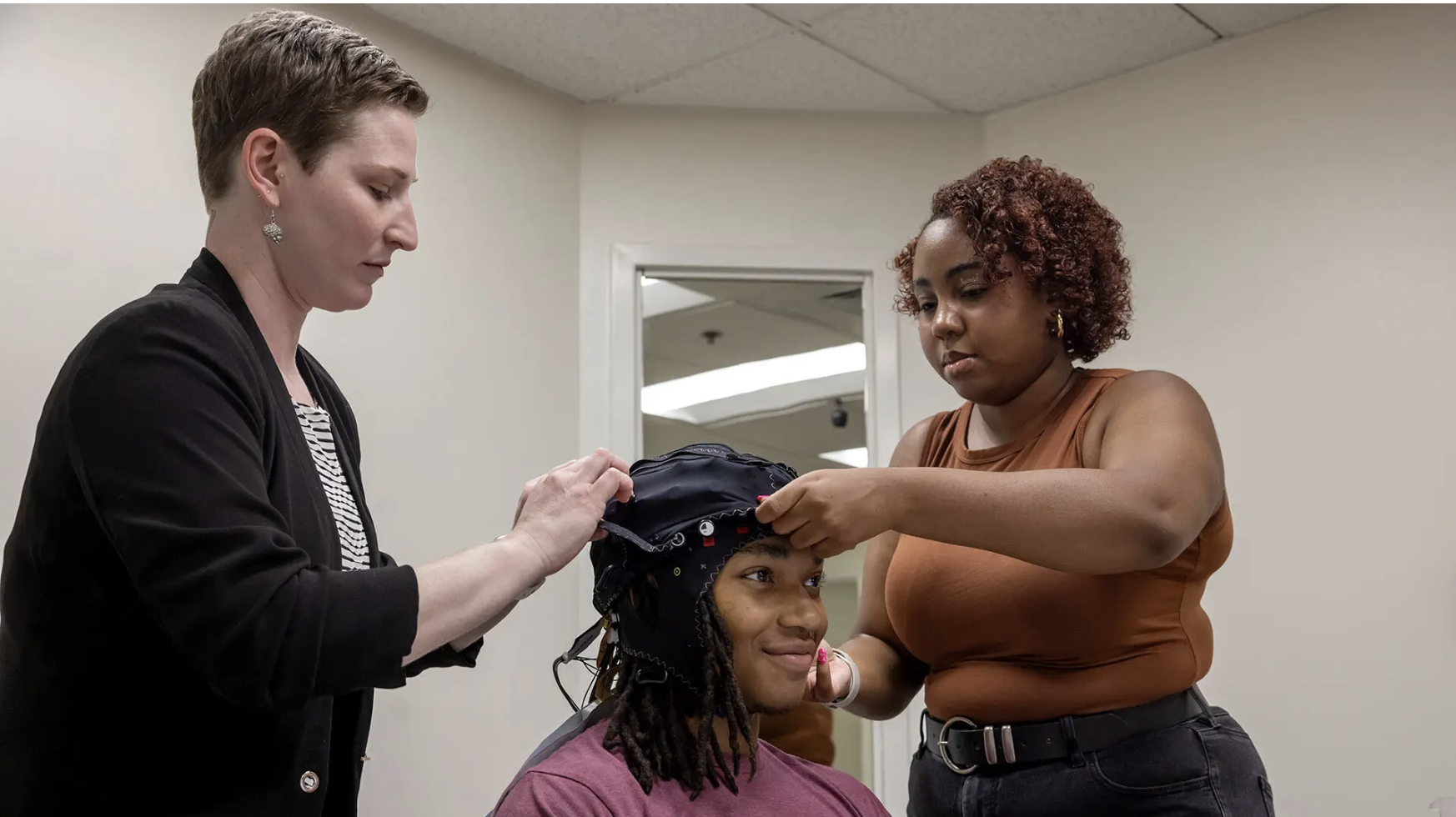At this year’s Association for the Accreditation of Human Research Protection Programs (AAHRPP) conference, University of Maryland (UMD) Division of Research staff members Jennifer Blackburn, Quality Assurance Program Manager, and Joseph Smith, Director of the Human Research Protection Program (HRPP), received the Distinguished Poster Award. Blackburn and Smith presented their poster on the hair equity techniques used by UMD scholars in non-invasive neurological research.

Neurological research often relies on techniques such as electroencephalography (EEG), which requires the application of conductive gel to the scalp. For individuals with thick, curly, or textured hair, this can pose significant challenges, often resulting in poor data quality or the need to undo hairstyles—a process that can be time-consuming and costly for participants. These barriers have historically excluded certain groups, particularly Black communities, from participating in neurological research.
Based on Quality Assurance reviews, the HRPP at UMD found that researchers are implementing innovative practices in EEG projects to enhance the inclusivity of individuals with diverse hairstyles and textures in neurological research. Blackburn and Smith conducted an internal analysis of all Institutional Review Board (IRB) protocols involving non-invasive brain imaging techniques as well as engaged with over 45 researchers to understand and document the practices implemented to promote hair equity and inclusion.
Key findings and innovative practices include educating research staff on different hair types and styles, coordinating research schedules with participants' hair washing and styling appointments, offering extra compensation for those who need to remove or restyle their hair, and ensuring participants understand which hairstyles are compatible with EEG electrodes.
"It is promising to see that researchers are beginning to consider methods to promote hair equity in neurological research," said Blackburn. "However, additional considerations will need to be made in order to ensure that neurological research is inclusive of all individuals in the future.”
Smith added, “We hope that this poster will encourage others to take these solutions and build off of them to create more opportunities for all participants and researchers.”
Blackburn and Smith’s poster was one of three awardees at the San Diego-based conference which aimed to convene experts from the research community as they tackle “Science and Standards” issues in research.
For more information, and to view the award-winning poster, visit: https://aahrpp.org/education-news-and-events/annual-conference.
